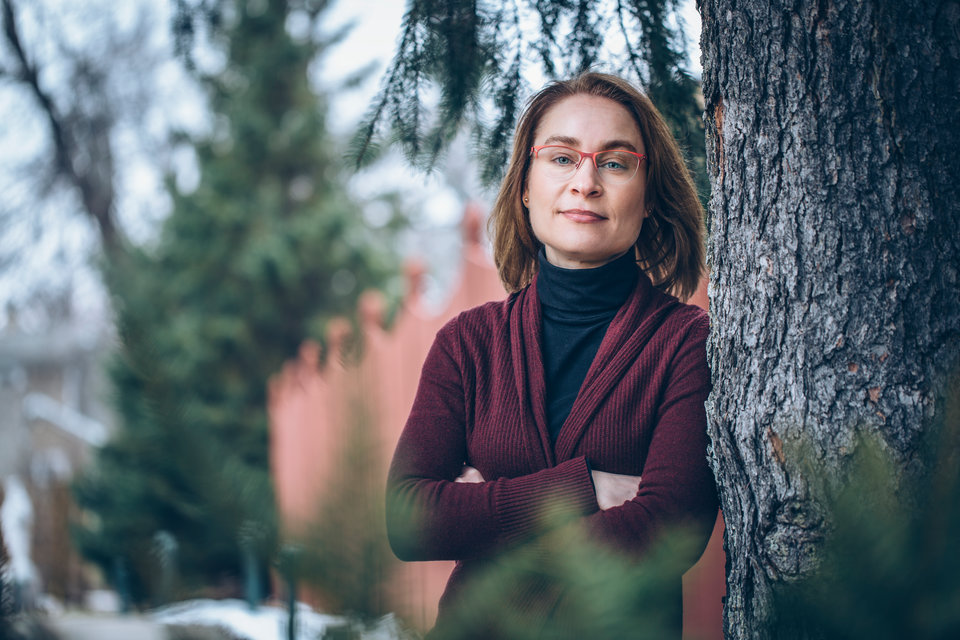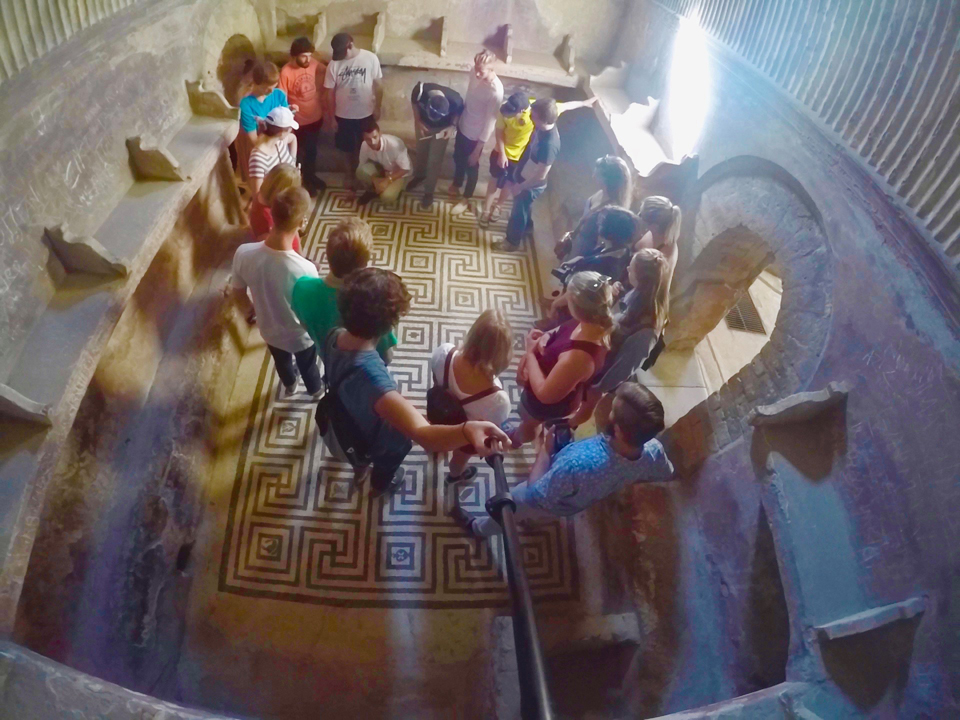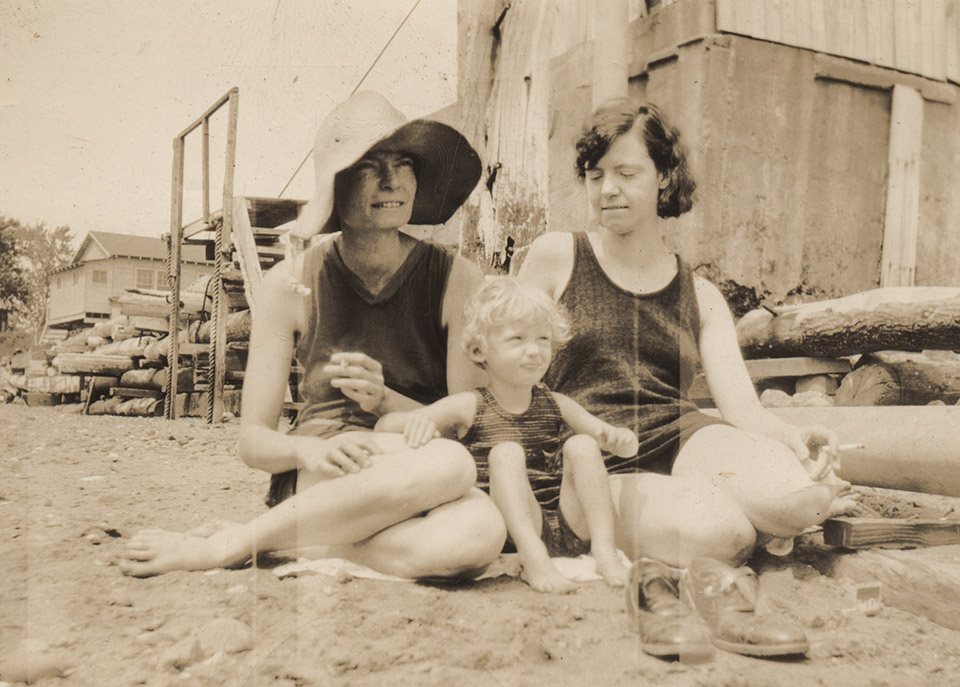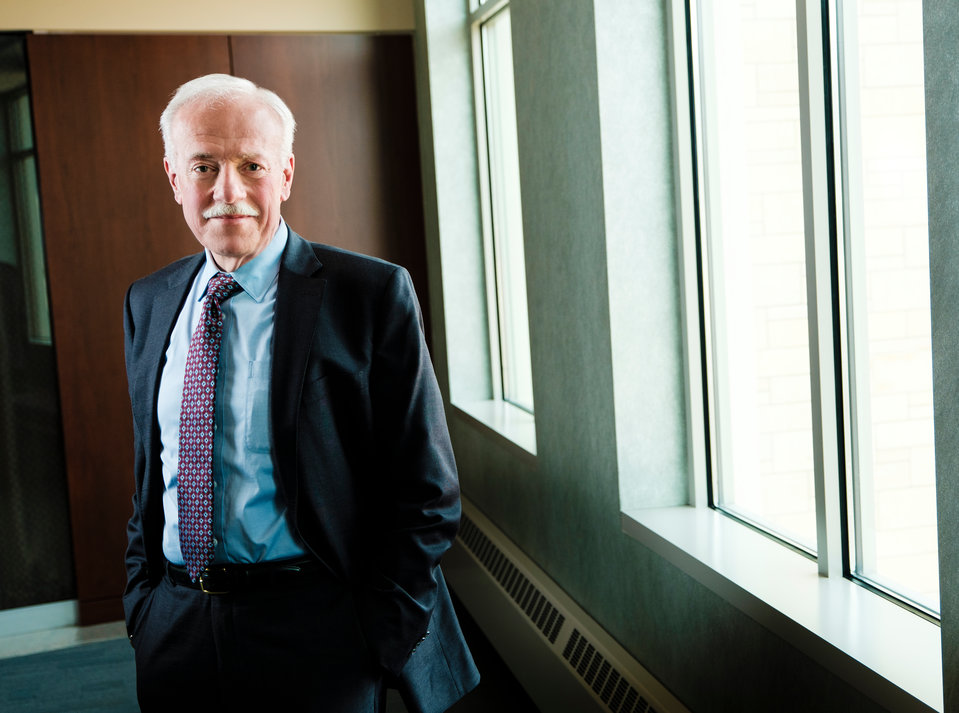The past few issues of Spotlight have featured recipients of the John Ireland Award for Outstanding Achievement as Teacher-Scholar. Recent recognition through awards and grants of four CAS faculty highlights potential future Ireland award winners.

Elizabeth Kindall, Art History
An expert on Chinese painting, Dr. Elizabeth Kindall is an associate professor of art history. Her recent book, Geo-Narratives of a Filial Son: The Paintings of Huang Xiangjian (1609-1673) (Harvard University Asia Center), was one of three finalists for the 2017 Charles Rufus Morey Book Award from the College Art Association. The award honors an especially distinguished book in the history of art.
While Chinese landscape paintings are well known as a genre, Kindall’s work brings a new perspective of “geo-narrative” to its study. She shows how image and text can provide a site-specific topographical journey in which the viewer is transformed by how the landscape and architecture in the painting narrate a story. Geo-narratives were structured to recreate a journey, commemorate an event, honor an individual, raise funds for a site, evoke nostalgia for the past, illustrate a philosophy and even summarize a life.
Kindall’s book grew out of her dissertation research but was transformed by her travels to China to visit the sites depicted in the paintings she studied. From the top of Mount Jizu at the foot of the Himalayas, she observed that Huang Xiangjian had used the lake to the southwest and the Himalayas to the northwest to recreate an entire journey in one painting. One only understood the significance of the painting by climbing the mountain and studying the view it afforded. This pictorial tradition, previously undocumented but available to experienced travelers, led to the concept of geo-narrative that is one of the key insights of her book.

Chip Small, Biology
Dr. Gaston “Chip” Small is an assistant professor in biology who has just received a substantial five-year Faculty Early Career Development (CAREER) grant from the National Science Foundation (NSF). The CAREER grant is NSF’s most prestigious award in support of junior faculty, recognizing teacher-scholars who undertake outstanding research, are committed to excellence in education and will be leaders in integrating education and research.
His project, “The Effects of Urban Agriculture Expansion and Climate on Nutrient Recycling and Loss in Urban Ecosystems” is an extension of his work with Dr. Adam Kay and students on urban farms and community gardens. It also builds on his previous research projects studying nutrient cycling in tropical rainforests and in the Great Lakes.
Urban agriculture has expanded rapidly in recent years and has the potential to provide environmental benefits such as recycling nutrients from food waste into new food. Fertilizing with compost, however, also can contribute to a build-up of phosphorus in the soil, potentially making gardens a source of water pollution. This project will provide data that can be used by stakeholders to improve best management practices in urban agriculture, as well as opportunities to engage students in this project through biology courses and independent research experiences. With urban agriculture in its beginning stages as a potential source of sustained food production, Small’s work could make an important impact on its continuing development.

Chris Santiago, English
Dr. Chris Santiago is an assistant professor of English. He received the Lindquist & Vennum Prize for Poetry from Milkweed Editions for his book of poems, Tula. The book was also a finalist for the 2017 Minnesota Book Awards.
The broad theme of Santiago’s work is displaced people and their literature, and in particular he considers the experience of sonic displacement: how do things sound in a new environment as when one moves to a new country and the sound of language around you is different, not just in words, but in its rhythm and tone? While focusing on literature in his graduate work, he built both his creative and scholarly work upon his awareness of sound as an undergraduate music major. In graduate school, he studied how different disciplines, such as architecture, urban planning and musicology studied sound, adding new insights to the analysis of literature.
His reading in prenatal language development, which shows that babies are primed for language development by absorbing the sounds of language in utero, confirmed his intuition that sound is a key element of language and environment. His own experience, growing up in Minnesota as a native speaker of English but hearing his parents speaking their native Tagalog resonates with his work. In Tula, he plays with both sound and syntax in his poetry. A. Van Jordan, who selected Tula for the Lindquist & Vennum Prize, noted that “in a hypnotic blend of languages and lands, Tula captures the voice of a world we are happy to inhabit.”

Ted Ulrich, Theology
Dr. Ted Ulrich, a professor in the Theology Department, recently was appointed a 2017-18 Fulbright Scholar. He will spend nine months in the state of Tamil Nadu in India, most likely at Gandhigram Rural Institute, where he will teach a course, Hindu-Christian Dialogue: A Historical Survey.
Ulrich also will continue his research on 20th century Hindu philosopher Aurobindo Ghose, better known as Sri Aurobindo. Widely known for his spiritual and philosophical writings, earlier in his life he had advocated for active resistance against British imperial rule and sometimes saw violent resistance as justified, like the idea of just war in Christian theology. Ulrich will place Sri Aurobindo’s arguments about the role of violent resistance into historical context by comparing them with the well-known views of Gandhi, who was influenced by Sri Aurobindo, but who also disagreed with him and later led a non-violent, and ultimately successful, movement against British rule.
Several of Ulrich’s academic interests contributed to his successful Fulbright application. Ulrich’s project grew out of a National Endowment for the Humanities seminar on religion and politics in India, held in 2004. In the wake of the seminar, he initiated a January study abroad course, Religion and Culture in the Villages of India, which he has taught four times. The course is held mainly in the countryside of South India and involves rural homestays of six to 11 nights. This teaching experience led him to study the Tamil language and helped him form close contacts with Sri Aurobindo scholars in India.
Read more from CAS Spotlight.





